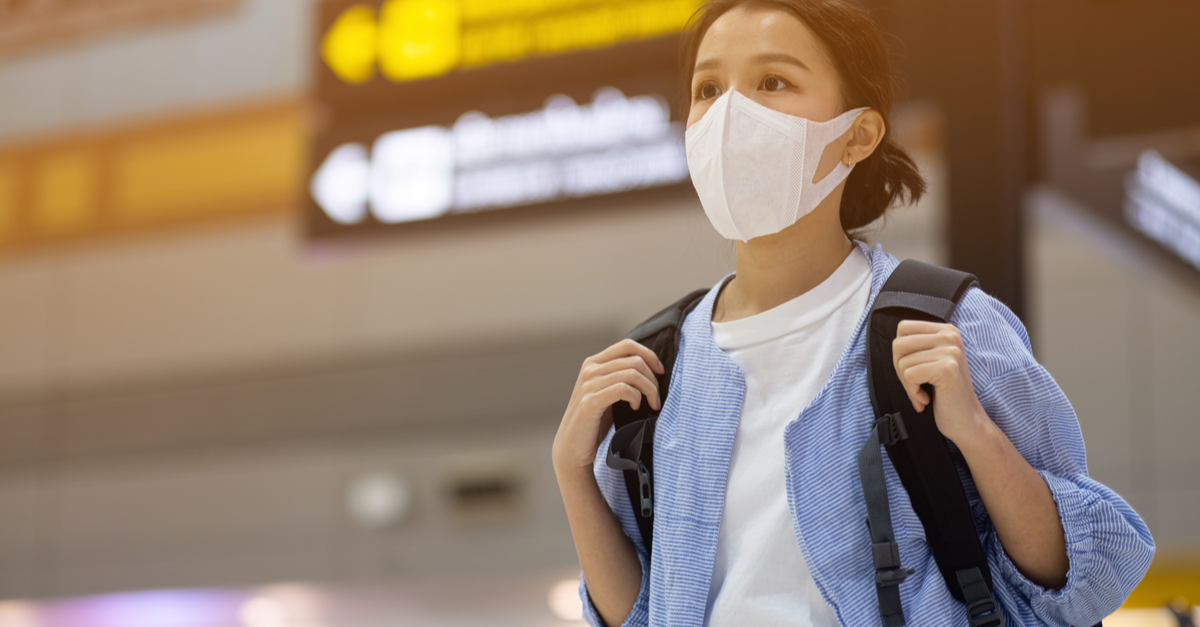If you own a car, you may be getting a rebate from your auto insurer if you haven’t already. With most of the country under stay-at-home orders because of the coronavirus, fewer people have been driving and having accidents. Because auto insurers are paying fewer claims, they’re refunding a portion of premiums to policyholders.
Extra cash from car insurance rebates is welcome, as many Americans are experiencing lost wages and increased financial anxiety as a result of the pandemic.
If you’re trying to manage your finances and lower your expenses during the coronavirus, insurance coverage is a good place to look. Americans spend more than $15,000 per year on insurance, which accounts for 26% of average annual household expenses. Take stock of your insurance portfolio to see where you may find savings.
Auto Insurance

More than 80% of car insurers have announced a combined $6.5 billion in customer refunds or credits. Not all car insurance is created equal, nor are all pandemic-related savings opportunities. Some insurance programs are offering premium rebates of 15% to 25% for a month or two, while others are offering $50 refunds per policy. Some companies are automatically applying these discounts. If you haven't received one, contact your insurance company.
More Car Insurance Saving Solutions
Whatever car insurance you have, there may be ways to save money. At a minimum, if you're no longer driving every day because you're working from home or have been laid off, call your insurance company to let them know. You may qualify for a low-mileage discount.
Many insurers are also offering grace periods or other hardship accommodations if you're struggling to afford your car insurance. Ask what relief your insurer offers before you let your policy lapse. You'll likely pay more later to reinstate it, and you may also pay a penalty to the DMV when you go to renew your vehicle registration.
Health Insurance

News of coronavirus hospitalizations and mortality rates may make it seem like healthcare spending is through the roof. But with so many people avoiding routine, preventive and elective care, many health insurers are experiencing substantial decreases in medical expenses and associated increases in profits.
The Affordable Care Act requires insurers to refund excess profits if they spend less than 80% of premiums on medical costs, depending on company size. Those refunds are calculated based on a three-year average of expenses, so insurers can legally wait to see if their costs spike once the crisis subsides before offering rebates. In 2019, nearly 9 million people got rebates, which averaged between $100 and $200 per person, depending on the type of coverage.
Some Health Insurers Are Offering Savings
Some large insurers are proactively committing to refund a portion of premiums and waive some consumer out-of-pocket costs beyond the required fee waivers for COVID-19 testing. These new policies do not apply to companies that self-insure because, in these cases, the insurer only provides administrative services. Most large employers self-insure, which means they pay for medical costs directly and decide on the employees' costs, so any waivers or rebates would be at their discretion.
Millions of Americans struggled to pay for health care even before the coronavirus. Now, as many as 27 million people could lose their health insurance and are scrambling to find new coverage as a result of record unemployment. Knowing you could get money back if your insurer overcharges you may be a small comfort as you search for affordable options.
Life Insurance

If You Already Have Life Insurance
In most cases, death resulting from COVID-19 is covered by life insurance, unless a policyholder fails to pay a premium or gives false information on the life insurance application.
If you're struggling to make your life insurance payments, call the insurer. They may have a grace period or other accommodation for financial hardships.
If you have a permanent life insurance policy, you may be able to borrow against your policy without submitting a loan application or hurting your credit rating. This type of policy may help you access emergency cash if you've lost your job or source of income or if you own a small business that's struggling because of the pandemic.
If You Don’t Have Life Insurance
Despite the pandemic, you can still probably purchase life insurance, though the process may be adjusted or take longer. If you are sick with COVID-19 or have tested positive for it, you may not be able to qualify for life insurance until you recover or test negative.
You may face extra scrutiny if you have traveled or plan to travel internationally, especially if you visit a country that the CDC has recommended avoiding. If you undergo a medical exam, you will likely see the examiner take extra precautions to ensure your and their safety. You may be able to forego a physical exam if you can provide access to your medical records or physician notes from a recent medical visit.
Different types of life insurance — term, whole and universal — serve different purposes and budgets. Now might be a good time to find the best one for you and your family. Though increased mortality risks from COVID-19 could affect life insurance premiums over time, rates do not appear to have risen across the board so far. However, rates and requirements vary and depend on a range of factors, so shop around.
Homeowners Insurance

Like auto insurers, homeowner insurance carriers are increasingly attuned to widespread financial hardships. Many are suspending payments and fees, and some states have required carriers to offer grace periods for late payments. If you're a homeowner struggling to pay your insurance premiums, call your carrier to see if they can help. You may also find opportunities to scale down your coverage, depending on your needs and tolerance for risk.
With more people spending time at home, homes are getting more use. The added activity could result in more claims. If you need to make a claim, expect a longer process. Not only are millions of other homeowners in the same boat, which could cause claim volumes to increase, processing those claims may take longer because lockdowns may impede in-person assessments.
Though home sales have declined substantially from the start of the year, people are still buying homes at slightly higher rates than last year. If you're in the market for a new home — or feel like you may be paying more than you should for your existing homeowners insurance — shop around for homeowners insurance that fits your needs and budget.
Renters Insurance

Renters insurance covers your property from theft or damage. Like other insurance types, many carriers are implementing generous policies such as waiving late fees or suspending cancellations for missed payments.
If you're struggling to make ends meet, you may be tempted to drop your renters insurance. Because it's not required like homeowners or auto insurance, you can technically go without it. Still, you should calculate your property replacement costs to be sure any short-term savings are worth the risk.
Because of coronavirus lockdowns and stay-at-home orders, some renters are breaking their leases to move back home or pausing their new apartment searches, given economic uncertainty. In that case, you may not need renters insurance. If you're in the market for a new rental or staying where you are but don't have renters insurance, shop around for the best deal. These policies provide a little extra peace of mind and financial protection for a relatively low cost.
Travel Insurance

The pandemic foiled all kinds of travel plans — from work conferences and meetings to family vacations, destination weddings and spring break trips. Many Americans have no idea when we'll be able, or willing, to get on a plane again. But in the midst of the coronavirus, travel insurance may be more critical than ever.
Waived Travel Cancellation Fees
Many airlines and hotels offered refunds and waived change and cancellation fees as the coronavirus crisis began disrupting daily life. Hoping to begin the economic recovery in the travel industry, many companies are now proactively offering flexible policies to encourage bookings even in the face of uncertainty.
Even though travel change and refund policies may be more liberal because of the coronavirus, you can still get stuck paying for a trip you may not be able to take. Before you book travel, consider how to protect yourself with travel insurance in case you have to cancel. Consider policies that provide emergency medical treatment and medical evacuation coverage in case you get sick while you're traveling. Look at trip interruption coverage in case you get sick and can't travel. "Cancel for any reason" coverage allows you to cancel your plans even if you are not sick but worry about your safety or feel more comfortable staying home.
Remember Why You Got Insurance in the First Place

Insurance is designed to protect you financially from uncertainty, but paying for it can be a hardship right now. Before you let your insurance lapse to save money on premiums, check with your carriers. Insurers benefit from your long-term business, so you may find they are more flexible and forgiving at the moment. Call your insurer to let them know what your situation is. They may be able to offer new savings or other policy options, and you may even get money back.
About the Author
Deb Gordon is the author of “The Health Care Consumer’s Manifesto" and a writer for MoneyGeek.
Sources
- Bloomberg. “UnitedHealthcare, Cigna, and Humana offer discounts to customers.” Accessed May 14, 2020.
- Centers for Disease Control and Prevention. “COVID-19 Travel Recommendations by Country.” Accessed May 14, 2020.
- Centers for Medicare and Medicaid Services. “2018 MLR Rebates by State.” Accessed May 14, 2020.
- Consumer Federation of America. “Report Card to Date on the $6.5 Billion+ Promised To Auto Insurance Customers as People Drive Less Due To COVID-19.” Accessed May 20, 2020.
- Consumer Reports. “Car Insurers Are Giving Customers Breaks Due to Coronavirus. We Got the Details for You.” Accessed May 14, 2020.
- Health Affairs. “New Guidance To Implement COVID-19 Coverage Requirements And More.” Accessed May 14, 2020.
- Healthcare.gov. “Rate Review & the 80/20 Rule.” Accessed May 14, 2020.
- Health System Tracker. “Potential costs of COVID-19 treatment for people with employer coverage.” Accessed May 14, 2020.
- Kaiser Family Foundation. “As Unemployment Skyrockets, KFF Estimates More than 20 Million People Losing Job-Based Health Coverage Will Become Eligible for ACA Coverage through Medicaid or Marketplace Tax Credits.” Accessed May 14, 2020.
- National Association of Realtors. “Existing Home Sales.” Accessed May 14, 2020.
- National Association of Realtors. “Home Sales Increase Year-Over-Year Despite Expected Monthly March Sales Decline Due to Impact of COVID-19.” Accessed May 20, 2020.